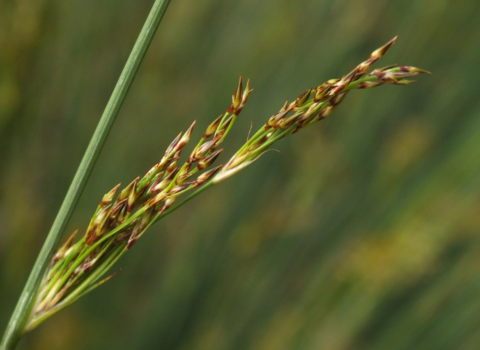
Hard rush by Shadowshador
Hard rush
The stiff, spiky and upright leaves and brown flowers of hard rush are a familiar sight of wetlands, riversides, dune slacks and marshes across England and Wales.
Enw gwyddonol
Juncus inflexusPryd i'w gweld
January to DecemberTop facts
Ynghylch
The grey-green, rigid stems of hard rush are a distinctive feature of damp ground, such as wet grassland, riversides, dune slacks and marshes. These stems were used for basket-making and weaving in times past, but are thought to be poisonous to livestock. The brown flowers of hard rush appear from May to July.What to look for
Hard rush has tall, rigid, grey-green stems without leaves; they are stiffer and more brittle than those of the similar Soft rush. Its brown flowers are borne in loose clusters.Where to find
Mainly found in England and Wales, scarce elsewhere.Roeddech chi yn gwybod?
Hard rush can produce as many as 200,000 seeds per plant, which are dispersed by the wind. As with many sedges and rushes, it can spread also using rhizomes (underground stems).
Hard rush by Shadowshador
